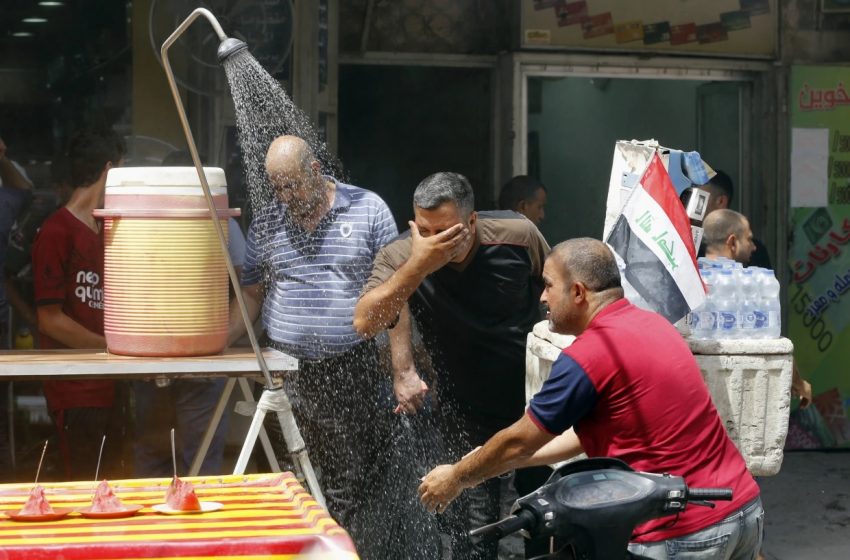Children in Iraq to be exposed to high heatwaves by 2050

Iraqis cool in the summer heat by using an open air shower in Baghdad. Photo: AP
Baghdad (IraqiNews.com) – The UNICEF issued a statement on Wednesday warning that urgent action is needed to increase funding for adaptation to protect children, and vulnerable communities from worsening heatwaves and other climate shocks.
The UNICEF issued a report highlighting the extensive impact of heatwaves on children. It also revealed that, even at lower levels of global heating, in just three decades, more regular heatwaves are unavoidable for children everywhere.
The report estimates that by 2050, all of the world’s 2.02 billion children are expected to be exposed to high heatwave frequency.
Forecast for Iraq is especially worrisome. While in 2020, only 6 percent of Iraqi children are exposed to high heatwave frequency, they will also be exposed to high heatwave duration and extreme high temperatures by 2050, the statement mentioned.
The UNICEF defined high heatwave frequency as where there are on average 4.5 or more heatwaves per year, high heatwave duration as where the average heatwave event lasted 4.7 days or longer, and extreme high temperatures as where the temperature, on average, 83.54 or more days a year, exceeds 35 degrees Celsius.
“Already, nine out of ten children in Iraq are exposed to extreme high temperatures, and it is only going to get worse,” UNICEF Representative in Iraq, Sheema SenGupta, said.
“More children and young people will be impacted in Iraq by longer, hotter and more frequent heatwaves over the next thirty years, threatening their health and wellbeing, and likely worsening mental health conditions and impacting most vulnerable children, especially girls,” SenGupta explained.
The report found high heatwave duration currently impacts 538 million, or 23 percent of children, including adolescents, globally. This will rise to an average of 1.75 billion children in 2050, emphasizing the importance of urgent and dramatic emissions mitigation and adaptation measures to contain global heating and protect lives, the statement added.
The UNICEF called on governments globally to protect children and young people from climate devastation by adapting social services, prepare children and young people to live in a climate-changed world, prioritize children and young people in climate finance and resources, and prevent a climate catastrophe by drastically reducing greenhouse gas emissions.
